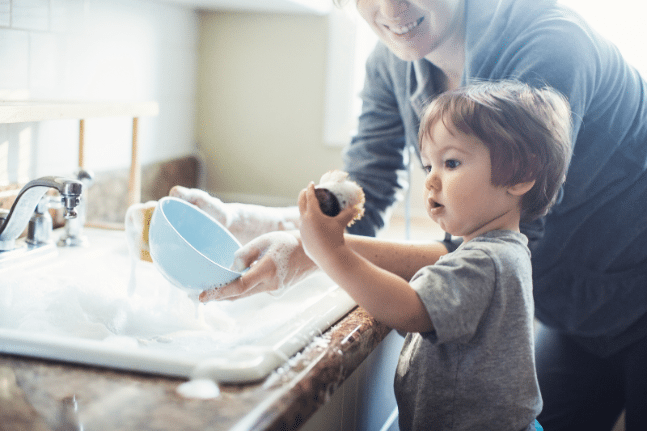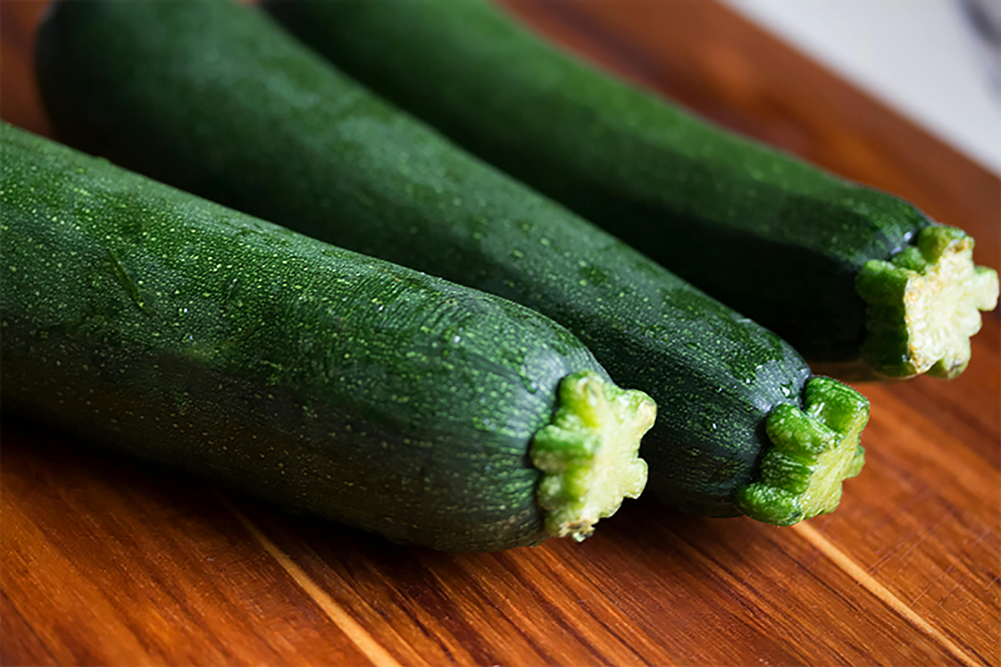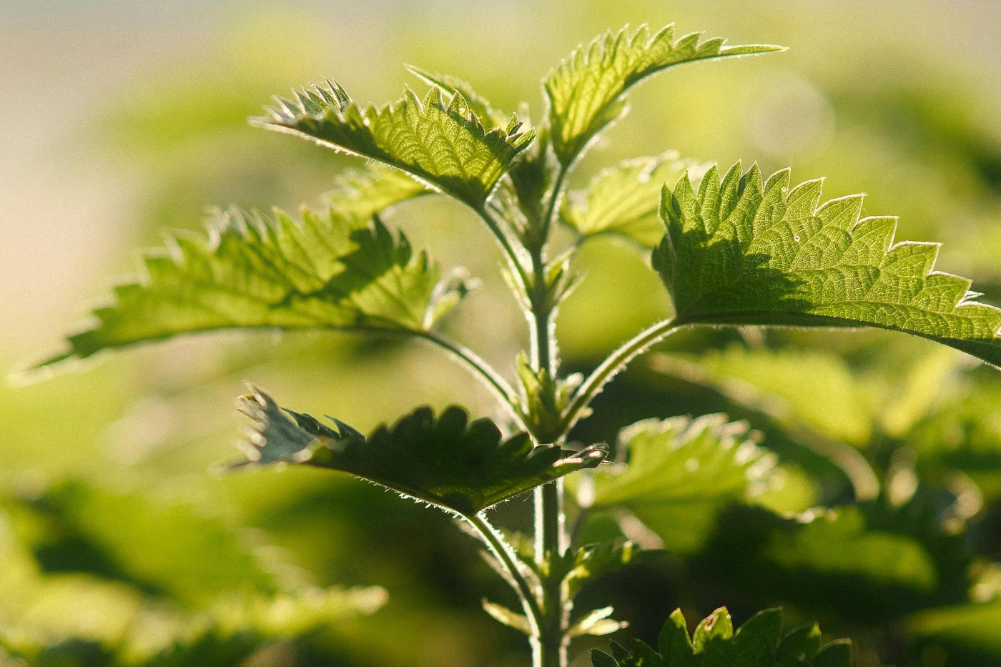Is it time for a green clean?
You may have noticed the number of “eco-friendly” cleaning products hitting the shelves that tout the virtues of their “natural ingredients”. However, just because a bottle of kitchen spray or bathroom cleaner has the words “eco-friendly” on it and a picture of a lemon or orange, that doesn’t necessarily mean it’s a healthy addition to your home.
This often-deceptive marketing technique is called “greenwashing”, which is where a product is actively portrayed as being environmentally friendly or organic in nature when, in fact, it may be anything but. In fact, you may be surprised at what is lurking there in the small print — or the absence of any small print at all.
Fruits like lemon and oranges, naturally derived essential oils and common household ingredients can all be used to keep your home sparkling clean — without the costs.
Many countries do not require manufacturers to mention on their labels that cleaning products contain neurotoxic agents, carcinogens or hormone-disrupting chemicals. That is rather concerning considering the amount of time we spend in our homes — and the number of cleaning products we use often on a daily basis.
The fact that more than 72,000 synthetic chemicals have been produced since World War II is astounding. That we’ve found ways to incorporate these synthetic chemicals into our everyday lives is shocking, particularly when there are safe, natural alternatives available that not only do no harm but also work.
There is no debate that the majority of mass-produced products on the market today clean the home and clean it well — but at what cost? “There are two types of harm done: the harm on us and the harm to our planet,” states low-toxicity life educator Alexx Stuart, creator of the e-course 30 Days to Your Low-Tox Life (alexxstuart.com).
Household cleaners are often laden with synthetic materials that can be harmful to health — particularly the health of children and those of us with sensitive skin, allergies or respiratory problems.
“The major harm done to us is through endocrine-disrupting chemicals such as phthalates, phenoxyethanol, dioxin and bisphenol A (BPA), as well as lung damage through harsh bleaches and surfactants,” explains Stuart.
“Then there’s the unsustainable palm oil, the phosphate and the sodium lauryl sulphate that’s petroleum derived. There’s no need to panic but there is a need for us to change our choices. It’s exciting that we can change the world by doing something as simple as swapping products.”
What you use to clean your home is one of the things you do have control over, so why not use the benefits of easily obtainable, natural ingredients and do away with all the rest? By substituting natural ingredients for synthetic substitutes, you can lower the number of toxins in your life and limit potential negative impacts you may be unintentionally creating. Fruits like lemon and oranges, naturally derived essential oils and common household ingredients such as bi-carb soda, white vinegar and salt can all be used to keep your home sparkling clean — without the cost to your health and environment.
Household cleaners from your pantry
You may already have some of the best household cleaners sitting in your cupboard, cleaning wonders that have been used for generations. Not only are they low on the toxicity scale; many of them are also inexpensive — which is always a bonus.
Vinegar
White vinegar is a form of acetic acid and a wonderful general household cleaner. Its acidity creates a hostile environment for microorganisms, which gives it a disinfectant-like effect that can also reduce lingering cooking smells — perfect for cleaning cutting boards, cooking utensils or even the inside of the microwave.
Bicarbonate of soda (bi-carb soda)
Bi-carb soda is made up of sodium and bicarbonate and works to soften water and neutralise odours while its abrasive texture makes a gentle scourer. When it comes in contact with water, bi-carb forms a weak alkaline solution that can dissolve and lift up grease and dirt.
Combining a tablespoon of bi-carb soda with half a cup of white vinegar creates an effervescent concoction that is useful for unblocking drains and diluting that awful stale drain smell.
“A great stain remover for white clothing for almost any stain — collars, armpits etc — is making a little paste with a bit of bi-carb soda and water and scrubbing it into the stain with a toothbrush,” suggests Stuart. “Leave for 15 minutes and then wash as normal, or leave for twice as long for older stains.”
Vodka
Vodka has more uses than for cocktails — well, the cheaper variety of vodka does! Vodka is a clean alcohol that doesn’t have an overpowering scent, making it perfect for such things as cleaning sticky residue off recycled jars and bottle or cleaning toothpaste and hairspray off the bathroom mirror. It also works well as a disinfectant for around the home.
White vinegar is a form of acetic acid and is a wonderful general household cleaner. Its acidity creates a hostile environment for microorganisms.
“For a disinfecting air spray, combine 75 drops of essential oils and one teaspoon (5mL) of vodka,” says Lora Cantele, a registered aromatherapist, clinical aromatologist, aromatherapy educator and writer. “Shake to combine and fill the remainder of the bottle with filtered water. Shake well before each use. Airborne essential oils can get into the nooks and crannies that your sponge or cleaning cloth cannot get into.”
Olive oil
Olive oil is great for hydrating wood and/or minimising everyday household wear and tear. Mixed with a little lemon juice, it can also be used as furniture polish. Simply add three parts olive oil and one part lemon juice to a bottle and shake well. Apply to wooden surfaces and furniture to give it a healthy sheen and clean finish. Olive oil can also be used to give shine to stainless steel or brass, and to treat leather furniture.
For cast-iron pans, combine a slurp of oil with a teaspoon of coarse sea salt and give pots and pans a good scrub before rinsing out with hot water. This mixture means you won’t taste a hint of strong pot cleaners in your next meal!
Salt
Salt is such a versatile addition to any pantry. When mixed with lemon juice or vinegar, it can help get rid of tough stains and mineral deposits. To treat mildew or rust stains, apply a mixture made up of lemon juice and salt onto the spot and allow the stain to naturally bleach in the sun before giving it a rinse and allowing it to dry. Be careful using this mixture on colours, though, as lemon, salt and sun can be quite a powerful team when combined.
Borax
Borax is a naturally occurring mineral salt with cleaning, deodorising, bleaching and disinfecting qualities. Wage war on bathroom soap scum by making your own scouring powder. Simply combine two parts bi-carb soda with one part salt and one part borax and scrub away.
Quick tip
Nut oils work really well to enhance wood finishes and keep your tables, furniture, chopping boards and countertops looking healthy and appealing. Apply a little oil on a soft cloth to marks and scratches. You can even use fresh nuts to hide scratches. Simple cut a walnut, Brazil nut or macadamia in half and rub the cut surface along the scratch. The nut oils help to darken the wood and hide imperfections.
Household cleaners from your fruit bowl
Lemon juice
Lemon juice contains citric acid, which can be used as a gentle bleach, deodorant, cleaning agent and mould inhibitor. Lemons also smell amazing and can be added to other natural cleaning ingredients for a fresh, clean scent.
Simply cutting a lemon in half can make for a quick-and-easy cleaning solution. Run half a lemon over discoloured kitchen benches or give the barbecue a good rub with it to get rid of charcoal and grease buildup. If your chopping board continually smells like onion and garlic, sprinkle with salt and squeeze lemon juice over it before giving it a scrub and rinsing in warm water.
Orange, grapefruits & limes
The fresh scent of orange, grapefruit and lime can really help freshen things up in your household. For a simple microwave cleaner, add some citrus peels to a microwave-safe bowl and fill the bowl halfway with water. Heat the bowl on high for about five minutes, or until a decent amount of steam covers the inside of the microwave, then wipe away any residue.
When paired together, orange peel and vinegar make for a lovely-smelling all-purpose cleaner. Simply fill an old glass jar with discarded orange peel, cover with vinegar, seal and leave for 10 days to allow the natural orange oils to mix with the vinegar. Then strain the liquid into a spray bottle and voilà!
“For a quick-and-easy all-purpose spray, combine half a cup of vinegar, half a cup of water and the peel from a lemon or lime, as well as a few drops of peppermint essential oil,” says Stuart. “It’s so yummy smelling and effective in the kitchen and bathroom. You could also add a few drops of eucalyptus or tea tree for an antibacterial effect — minus the harmful triclosan.”
Essential oils
Essential oils are a wonderful addition to many non-toxic home cleaners as they not only smell great but are actually effective cleaners in their own right. “Lemon, pine, tea tree, thyme and cinnamon leaf essential oils are particularly useful household cleaners, as they are antimicrobial and antibacterial,” says Lora Cantele. “You can make your own Bacteria Buster Blend [see recipe below] and use the blend to make your own cleaning products.”
Add a few drops of your favourite essential oil to your favourite DIY surface spray. To combat that musty vacuum cleaner smell, pop a few drops of essential oil onto a tissue and let the vacuum suck it up. The vacuum fan will release a pleasant scent.
Essential oils are a wonderful addition to many non-toxic home cleaners, as they not only smell great but are actually effective cleaners in their own right.
“You can make your cleaning products smell delicious and different throughout the year and seasons with quality essential oils,” agrees Stuart. “I just love shocking people with my stainless steel cleaner — a spent lemon wedge — and my leather polish, which is just a couple of drops of olive oil on a tea towel!”
In addition to being wonderful anti-microbial agents, essential oils also provide the added benefit of improving your emotional state and physical wellbeing as well. “They create homeostasis in the body, whereas using commercial cleaning products containing synthetic fragrances and harsh chemicals can irritate the skin, eyes and mucous membranes and irritate the airways and the lungs,” says Cantele. “The aromas are quite pleasurable, too, making cleaning less of a chore.”
Notes on using essential oils for cleaning purposes
Essential oil bottles should never be left open while you are creating your blends and cleaning products. “Essential oils are volatile, meaning they evaporate into the air quickly,” explains Cantele. “The more they are exposed to oxygen, the more potential for them to break down [oxidise]. Oxidised oils can lead to skin sensitisation, especially in the case of tea tree essential oil.
“Essential oils should be stored in a cool, dark place (citrus oils in the refrigerator) with the caps on tight,” Cantele adds. “Some essential oils should be used in very low amounts as part of a blend, as in the case of cinnamon, which can be a skin irritant if used undiluted or in too high a quantity.”
It’s important to remember that essential oils are highly concentrated plant substances, she says: “Less is more when using them for cleaning and therapeutically.”
Essential cleaning
Carpet Freshener
=R1=
Bacteria-Buster Blend
=R2=
DIY household recipes from The Complete Guide to Aromatherapy and Essential Oils Handbook for Everyday Wellness by Lora Cantele and Nerys Purchon.








